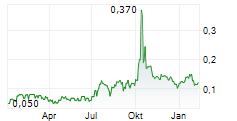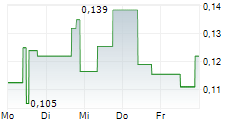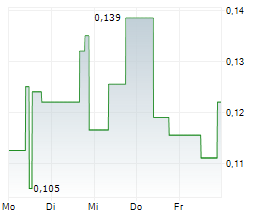
Toronto, Ontario--(Newsfile Corp. - January 22, 2025) - Appia Rare Earths & Uranium Corp. (CSE: API) (OTCQB: APAAF) (FSE: A0I0) (MUN: A0I0) (BER: A0I0) (the "Company" or "Appia") is excited to announce the geochemical assay results of its diamond drilling program on the high grade carbonatitic breccia located on the PCH project in the State of Goias, Brazil. The three drillholes (see Map 1) intercepted substantial Total Rare Earth Oxide (TREO), Niobium Oxide (Nb2O5) and Phosphate Oxide (P2O5) from the brecciated carbonatite intrusion identified in the Southwest Extension Zone of Target IV.
Tom Drivas, CEO stated: "The results from the first diamond drill holes are exceptional and would rank 2nd, 3rd, and 4th on the list of the best intercepts of the past year when compared to the recently reported results by MinerDeck, which highlighted the top REE intercepts of 2024. (Please Click Here) For all 3 drill holes to be mineralized with high grade rare earths from top to bottom highlights the enormous potential of the SW Extension zone. There is a strong case to be made that these results indicate that the PCH project could contain substantial high grade carbonatitic style rare earths in addition to Ionic Adsorption Clay (IAC) rare earth deposits. Mineralization is open at depth, northeast, northwest and southwest. We are currently developing plans for an expansion/resource-definition drilling program, and preliminary mineralogical-metallurgical test work on the diamond drill core from this program. These results exceed our expectations and increase our confidence in the success of our project."
Highlights:
Hole PCH-DDH-002 150 metres@1.14% TREO; 0.12% Nb2O5; 2.76% P2O5 from Surface
including 12 metres@2.54% TREO; 0.21% Nb2O5; 9.52% P2O5 from 37 metres
including 20 metres@1.75% TREO; 0.13% Nb2O5; 2.8% P2O5 from 81 metres
including 18 metres@2.03% TREO; 0.14% Nb2O5; 2.29% P2O5 from 132 metres
PCH-DDH-003 147.7 metres@1.69% TREO; 0.18% Nb2O5; 3.26% P2O5 from Surface
including 58 metres@2.19% TREO; 0.26% Nb2O5; 5.18% P2O5 from Surface
including 17 metres@1.87% TREO; 0.11% Nb2O5; 1.44% P2O5 from 117 metres
PCH-DDH-004 153 metres@1.08% TREO; 0.15% Nb2O5; 2.31% P2O5 from Surface
including 10 metres@2.16% TREO; 0.24% Nb2O5; 3.22% P2O5 from 10 metres
including 9 metres@3.08% TREO; 0.24% Nb2O5; 7.37% P2O5 from 42 metres
including 18 metres@1.01% TREO; 0.26% Nb2O5; 3.15% P2O5 from 135 metres
97 intervals from the total of 516 presented samples resulted in 'overlimit readings' for La, and/or Ce, and/or Pr, and/or Nd, and/or Nb. These samples will go through new analysis methods and are likely to improve the overall results already achieved to date.
All three (3) Diamond Drillholes (DDH) ended in mineralization indicating a potential to extend the zone at depth, northeast, northwest and southwest.
The full set of results are available through this LINK. The diamond drillhole coordinates are available using this LINK.
Drivas continued: "When Appia's team originally identified the SW Extension zone boasting exceptionally high grade assay results (See press release dated November 28, 2023 - Click Here), we were operating under the assumption that the clay material we were sampling was similar to the mineralization found across the rest of Target IV's Ionic Adsorption Clay (IAC) zone. Upon further analysis and following the review of the hard rock assay results from our recent diamond drilling campaign released today, we are now confident that we are dealing with a separate style of mineralization akin to a high grade carbonatitic breccia and the results are stellar."
The location of the PCH project is extremely favorable with easy access to road and power infrastructure, and the Company enjoys a very friendly and supportive relationship with the local cattle farming community.

Map 1 - Location of drillholes PCH-DDH-002, PCH-DDH-003 and PCH-DDH-004.
To view an enhanced version of this graphic, please visit:
https://images.newsfilecorp.com/files/5416/238032_635df7c114d3bb30_001full.jpg
The grades by interval of TREO and Nb2O5 - P2O5 for the three drillholes are presented in Figures 2 and 3 below, respectively. Tracking Niobium and Phosphate is important because they represent key pathfinders in the identification of carbonatites.

Figure 1 - Section showing drillholes TREO grades, in percentage.
To view an enhanced version of this graphic, please visit:
https://images.newsfilecorp.com/files/5416/238032_635df7c114d3bb30_002full.jpg

Figure 2 - Section showing drillholes Nb2O5 (left) and P2O5 (right) grades, in percentage.
To view an enhanced version of this graphic, please visit:
https://images.newsfilecorp.com/files/5416/238032_635df7c114d3bb30_003full.jpg
QAQC
Drillholes are inclined and reported intervals are apparent thickness. The material produced from the diamond drillholes are sampled at one metre intervals splitting the core in half, resulting in average sample sizes of 2-3 kg. The other Half core is kept in storage for further tests. The original core was logged and photographed.
The bagged samples are sent to the ALS laboratory in Goiânia, Goias for initial preparation and sent to Lima Peru for final analysis. In addition to the internal QA/QC of the ALS Lab, Appia includes its own control samples in each batch of samples sent to the laboratory.
Quality control samples, such as blanks, duplicates, and standards (CRM) were inserted into each analytical run. For all analysis methods, the minimum number of QA/QC samples is three standard, one duplicate and one blank, introduced in each batch. Several batches were used to comprises the full-length hole. The rigorous procedures are implemented during the sample collection, preparation, and analytical stages to insure the robustness and reliability of the analytical results.
All analytical results reported herein have passed internal QA/QC review and compilation. All assay results of DDH samples were provided by ALS, a Certified Laboratory, which performed their measure of the concentration of rare earth elements (REE) with the ME-MS81 analytical method that uses lithium borate fusion prior acid dissolution and Inductively Coupled Plasma Mass Spectrometry (ICP-MS). Major Element Oxides were done using ME_ICP06 analytical method using lithium borate fusion and inductively coupled plasma atomic emission spectroscopy (ICP-AES). Au, Pt and Pd samples were analysed using the fire assay method PGM-ICP27. Desorption analysis with ME-MS19 analytical method was executed for the initial 35 metres of each drillholes with samples being leached with a solution of Ammonium Sulphate at 0.5 molar, pH 4, room temperature for 20 minutes. The leached solution content was analysed using ICP-AES/ICP-MS.
The technical information in this news release, including the information related to geology, drilling, and mineralization, has been reviewed and approved by Andre L. L. Costa, Appia's VP Exploration for Brazil. Mr. Costa is a APEGS Professional Geoscientist (P.Geo.) and a Fellow of Australian Institute of Geoscientists (FAIG), a Qualified Person (QP) as defined by National Instrument 43-101 - Standards of Disclosure for Mineral Projects.
About Appia Rare Earths & Uranium Corp. (Appia)
Appia is a publicly traded Canadian company in the rare earth element and uranium sectors. The Company holds the right to acquire up to a 70% interest in the PCH Ionic Adsorption Clay Project (See June 9th, 2023 Press Release - Click HERE) which is 42,932.24 ha. in size and located within the Goiás State of Brazil. (See January 11th, 2024 Press Release - Click HERE) The Company is also focusing on delineating high-grade critical rare earth elements and gallium on the Alces Lake property, and exploring for high-grade uranium in the prolific Athabasca Basin on its Otherside, Loranger, North Wollaston, and Eastside properties. The Company holds the surface rights to exploration for 94,982.39 hectares (234,706.59 acres) in Saskatchewan. The Company also has a 100% interest in 13,008 hectares (32,143 acres), with rare earth elements and uranium deposits over five mineralized zones in the Elliot Lake Camp, Ontario.
Appia has 153 million common shares outstanding, 177 million shares fully diluted.
Cautionary note regarding forward-looking statements: This News Release contains forward-looking statements which are typically preceded by, followed by or including the words "believes", "expects", "anticipates", "estimates", "intends", "plans" or similar expressions. Forward-looking statements are not a guarantee of future performance as they involve risks, uncertainties and assumptions. We do not intend and do not assume any obligation to update these forward-looking statements and shareholders are cautioned not to put undue reliance on such statements.
Neither the Canadian Securities Exchange nor its Market Regulator (as that term is defined in the policies of the CSE) accepts responsibility for the adequacy or accuracy of this release.
For more information, visit www.appiareu.com
As part of our ongoing effort to keep investors, interested parties and stakeholders updated, we have several communication portals. If you have any questions online (X, Facebook, LinkedIn) please feel free to send direct messages.
To book a one-on-one 30-minute Zoom video call, please click here.
| Contact: | |
| Tom Drivas, CEO and Director | Stephen Burega, President |
| (c) (416) 876-3957 | (c) (647) 515-3734 |
| (e) tdrivas@appiareu.com | (e) sburega@appiareu.com |

To view the source version of this press release, please visit https://www.newsfilecorp.com/release/238032
SOURCE: Appia Rare Earths & Uranium Corp.



